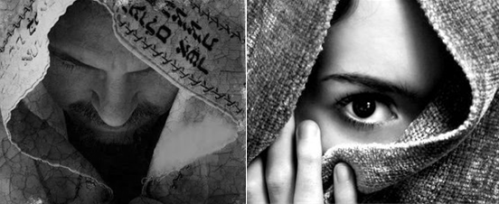Blurred Lines
The lines between subcultures in the one body of Christ should be blurred.
“Issues of culture are at the heart of Christian faith,” according to Andrew Walls. At first, the earliest believers of Christianity resembled typical Jews: they devoutly attended Temple, were circumcised, observed Sabbath, and read the Torah. They identified Jesus in terms of his Jewishness, such as his role in the salvation of the Israeli nation, his Jewish back ground, and his Jewish destiny. As Christianity spread when Apostles travelled after the crucifixion of Christ, new believers came around. They brought with them a completely different culture that included fraternizing with Pagans, being uncircumcised, and eating pork. Perhaps the biggest difference from these Gentiles and the early Jewish believers was that the Gentiles were not particularly concerned about the political destiny of Israel.

If cultures as different as the Jews and Gentiles were able to unite in the midst of the persecution and marginalization Christians faced as the religion began, then different cultures within Christianity can, and should, today. The melding of cultures was not only exemplified in Jesus and Ephesians, but it happened in me personally.
I come from a conservative, Filipino, Southern Baptist Christian background. I live a liberal, American, unconventionally Christian life. Where culture clashes between old and new, foreign and native occurred frequently, a strong faith grew. It was the pushing and pulling of different cultures I had contact with that strengthened me as an individual and Christian. In the middle of what seemed like conflict, I found a way to thrive and feed off the best of each world. Any time I would begin to think one culture was superior, whether it be the white-dominated Christians of the mother church at El Toro Baptist or the intellectually up-to-date Christians at a college congregation, I’d see something redeeming and valuable in another, such as the family-oriented warmth of a Filipino congregation or the peace and calm of a senior-citizen populated service at Calvary Chapel.

Sitting pretty at ETBCI
No one church or culture owns Christianity. Besides the Bible, there is not a single human authority that determines what life a Christian should live. Walls says, “One of the few things that are predictable about third-millennium Christianity is that it will be more culturally diverse than Christianity has ever been before, and thus have more capacity for blessing, and more capability for disaster, than any previous era.”
That “disaster” Walls will only arise when cultures within Christianity see each other as enemies, rather than observing what Apostle Paul said: “You are no longer foreigners and strangers, but fellow citizens with God’s people and also members of his household, 20 built on the foundation of the apostles and prophets, with Christ Jesus himself as the chief cornerstone” (Ephesians 2:19-20).
Filed under: Uncategorized | Leave a Comment

No Responses Yet to “Blurred Lines”